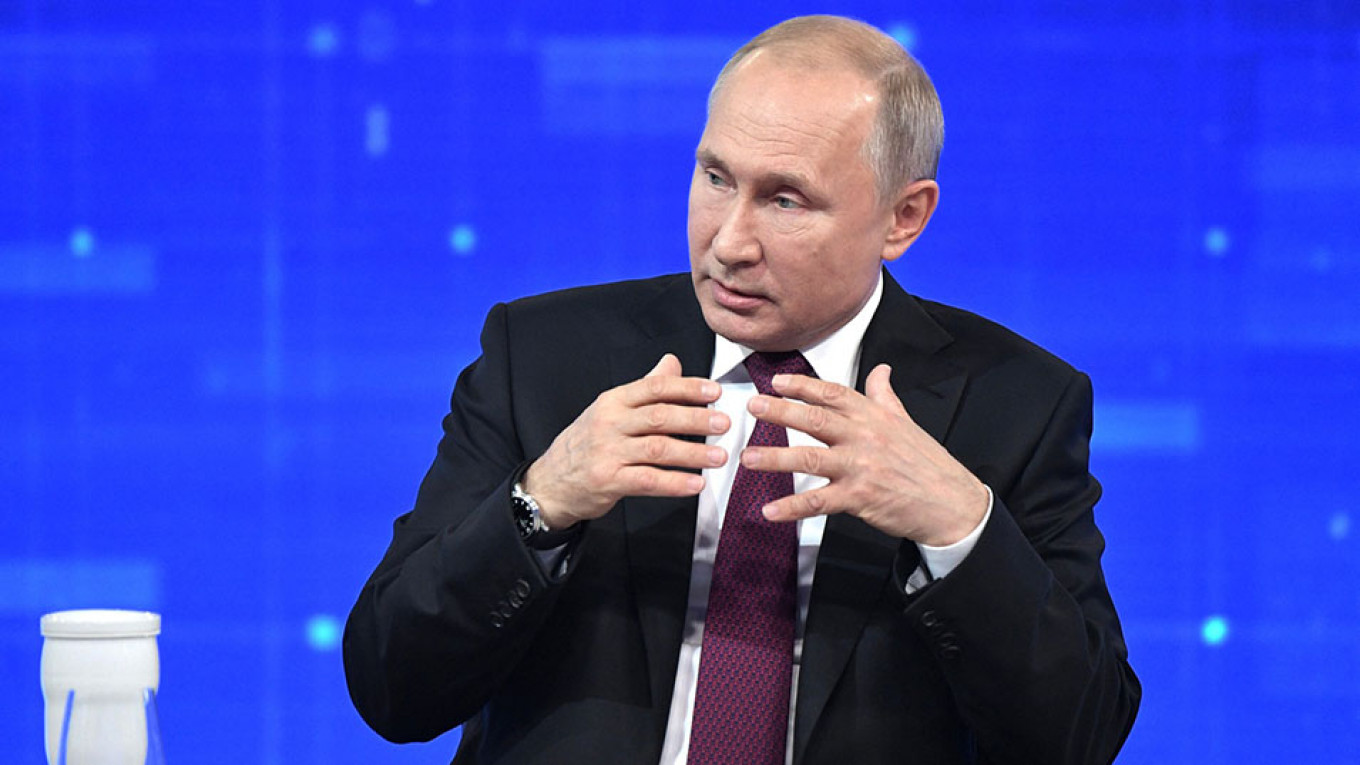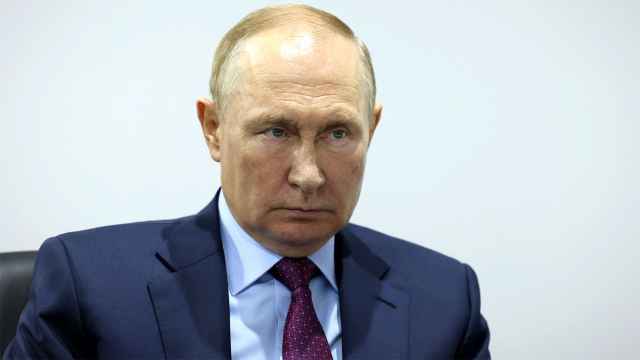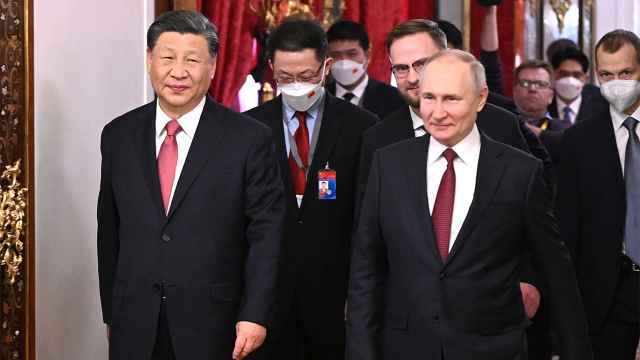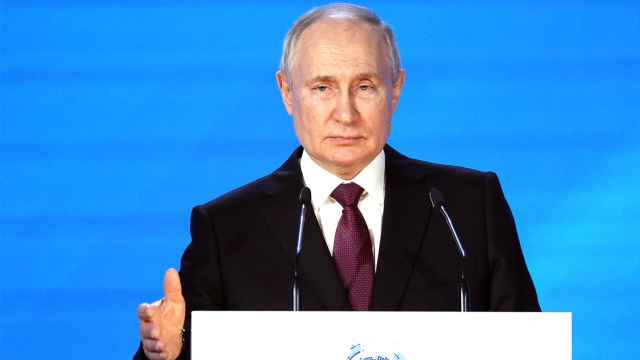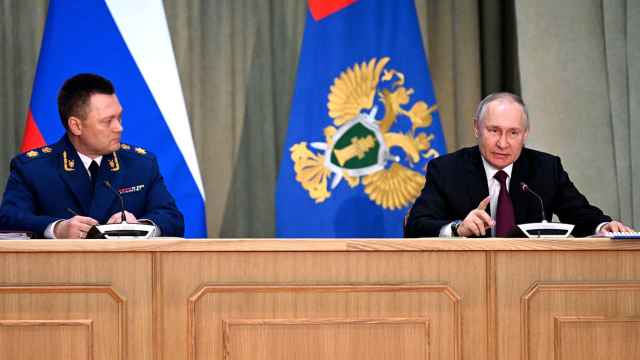President Vladimir Putin’s annual phone-in show on June 20 was the first to be held in the new political reality: a year ago, the consequences of raising the retirement age, falling ratings, and growing protests were not yet fully clear or palpable. The latest televised phone-in marathon was a test of both the president’s personal ability and that of the state to adapt to this new reality.
Putin had clearly prepared for his interaction with the public particularly meticulously, yet without the implementation of any political changes — a possibility completely ignored during this latest social therapy session — any attempts at adaptation will only add to the problems and further conserve the regime.
Much has been written about how Putin has drifted away from domestic policy in recent years, and at the last few phone-ins, it was obvious that the president was fatigued by the social agenda. This year was clearly an attempt to amend that image, with extensive discussion of social issues. It seems that the president was consciously trying to resume the role of national leader by increasing the traditional therapeutic component of the phone-in, which had drastically decreased in the last few years.
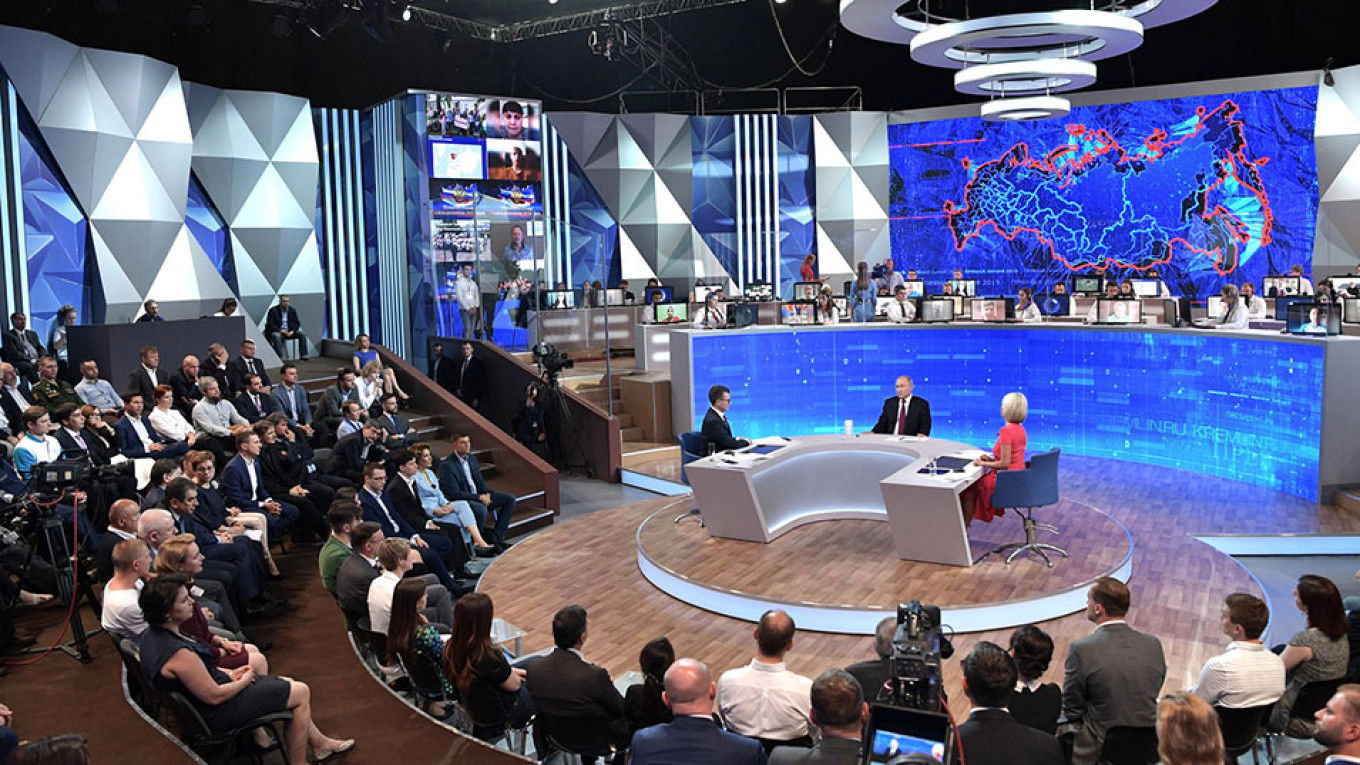
The manual control that has always been ascribed to the Putin regime has dwindled to four hours once a year for the phone-in, when individual approved groups get the chance to address the president and solve their problems, whether industry-related, corporate, or social.
Firstly, this precludes a systematic, long-term approach to solving problems that don’t fall under the much-vaunted national projects, the roadmap for Russia’s strategic development. Secondly, this measured ladling out of political leadership doesn’t solve one of the system’s main problems: the political deficit of Putin, who is drifting away not just from ordinary people, but from his own circle.
The main focus in terms of domestic policy was on the May decrees signed by Putin upon his reelection in 2018, and on the national projects, responsibility for which has been delegated to the government. Behind the torrent of memorized figures, it wasn’t hard to discern an attempt to justify the country’s current course of action, without making significant changes.
It makes sense that this year, the presidential administration convinced Putin to sound keener and more articulate in tackling social problems. But political leadership entails readiness not just to take responsibility for failures, but also to personally chart the course. The phone-in demonstrated that on many routine managerial issues, Putin no longer wants to — and is not trying to — develop solutions himself, preferring to delegate this function and the responsibility for the result.
On issues that don’t enter into the president’s personal daily schedule, he essentially represents an intermediary between the authorities and ordinary people. It’s a strange situation when the person who is theoretically key to the entire system, the guarantor of its stability, suddenly starts distancing himself from the authorities: from regional governors, ministers, and state bodies.
When will there be a bridge over the River Lena? Let the Yakutia regional government take care of it. Subsidized medicines are not available? Let’s put in a call to the health minister: the federal center has allocated all the funding, so the problem is clearly at the regional level. Not enough infrastructure in the new neighborhoods? Let the government find funds to help developers.
Putin had no opinion of his own on nearly all of the detailed questions, and chose between two tactics: either passing on responsibility to a lower level (we have provided the funding, so it’s not clear why it’s not working), or ordering the appropriate bodies to deal with the problem.
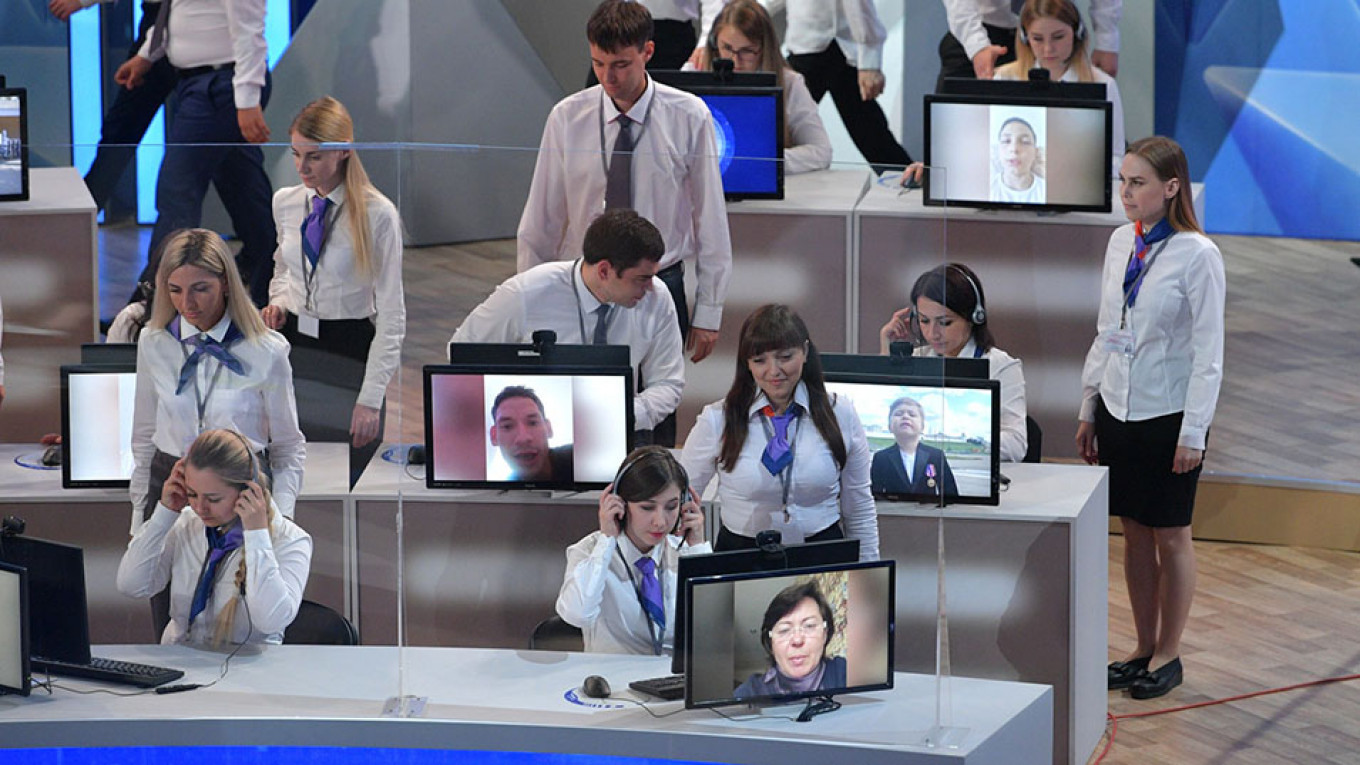
The main message running through the entire phone-in was: we are doing everything right. Funds are being allocated, revenues are recovering, the national projects are improving quality of life “right this instant.”
This all shows that Putin perceives growing discontent with the authorities as a purely emotional reaction, based not on real problems but on society’s failure to understand the true picture. This means that no significant revision of the country’s social and economic direction should be expected. Instead, the president and society will suspect each other of being unreasonable and not understanding what is really going on.
In contrast to his position on social issues, on many political issues Putin was harsh and uncompromising in his defense of the system, speaking up for the ruling United Russia party, which one participant of the phone-in described as a “gang of patriots”: After all, the party of authority remains a key political institution, and it’s unlikely that Putin wants to change that.
On the issue of easing off on prosecutions against businesses, Putin’s position was more conservative than many had expected, which was no doubt encouraging for the security services. He was very cautious on the possibility of relying less on the practice of automatically keeping people suspected of economic crimes under arrest, and was openly doubtful regarding the use of bail, warning: “they do run away, you know.”
Just as unexpectedly tough was the president’s response to a question about relaxing the enforcement of Article 228 of the Russian Criminal Code, which punishes drug-related crimes and under which the journalist Ivan Golunov was recently falsely arrested. The question was asked not in the context of the journalist’s arrest, however, but by the head of the Vera hospice charity, Nyuta Federmesser, who said that doctors in Russia are afraid to give patients opioid painkillers because of the law. Even so, Putin was unequivocal, saying: “There can be no liberalization in this respect.”
There were few questions on foreign policy. Putin joked about Ukraine’s new president, Volodymyr Zelensky; talked about the importance of dialogue with the United States; expressed support for issuing Russian passports to those living in Ukraine’s war-torn Donbas region and to refugees from Ukraine; and plugged the project to create a single-currency union between Russia and Belarus.
Only one non-random topic from the foreign policy part of the phone-in deserves particular attention: the cost of making concessions to the West. In recent times, a topic of discussion among the Russian elite has been the need to soften Russia’s rhetoric, and potential concessions that could be made to reduce the pressure of sanctions.
Putin gave his traditional, crystal-clear answer: no concessions will reduce the pressure on Russia. Putin doesn’t believe in the possibility of this kind of trade-off; he doesn’t trust the West (especially the United States), and sees the current geopolitical conflicts as a consequence of the crisis in relations, rather than their cause.
In other words, the conflicts are a consequence of the United States’ long-term, deliberate policy to weaken Russia, in which the annexation of Crimea and war in Donbas are merely an excuse to exert pressure on Russia. And so, following this year’s session of social therapy, it was time for Putin to return to the front.
This article was originally published by Carnegie.
A Message from The Moscow Times:
Dear readers,
We are facing unprecedented challenges. Russia's Prosecutor General's Office has designated The Moscow Times as an "undesirable" organization, criminalizing our work and putting our staff at risk of prosecution. This follows our earlier unjust labeling as a "foreign agent."
These actions are direct attempts to silence independent journalism in Russia. The authorities claim our work "discredits the decisions of the Russian leadership." We see things differently: we strive to provide accurate, unbiased reporting on Russia.
We, the journalists of The Moscow Times, refuse to be silenced. But to continue our work, we need your help.
Your support, no matter how small, makes a world of difference. If you can, please support us monthly starting from just $2. It's quick to set up, and every contribution makes a significant impact.
By supporting The Moscow Times, you're defending open, independent journalism in the face of repression. Thank you for standing with us.
Remind me later.



